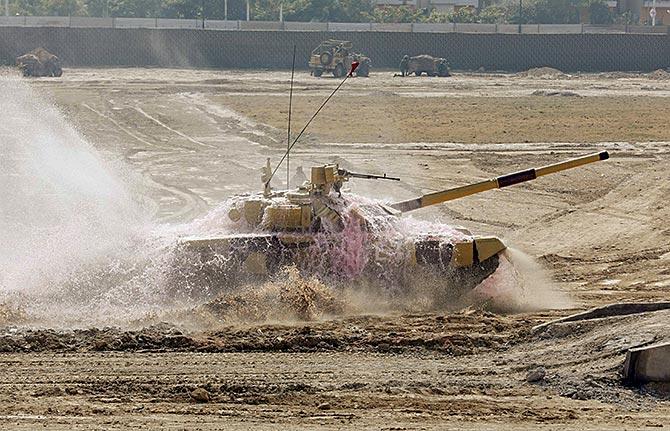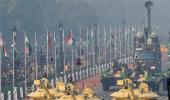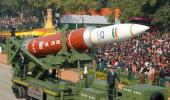'An economic slowdown affects a country's ability to modernise its defence capabilities as rapidly as possible.'
Ajai Shukla reports.

The United States ambassador to India, Kenneth Juster, has pitched strongly for India buying American military equipment because, as security partners, it would be useful for the country's weaponry and command and communications networks to be interoperable with those of the United States.
'We believe that India must ultimately move toward systems that are interoperable with the equipment and networks of its security partners,' said Juster, interacting with the media on the eve of DefExpo 2020.
With DefExpo 2020 featuring all-time high participation by US firms, Juster minced no words in urging India to buy American weaponry.
'US firms at this exhibition have supplied modern land and sea-based fighter aircraft, ballistic missile defence systems, the most advanced, networked avionics equipment, and secure communications equipment for the United States and our partners. They are poised to offer the same to India,' he stated.
Asked whether the flat Indian defence budget, with just $15 billion allocated for capex, was impeding US defence sales, Juster blamed the 'economic slowdown'.
'One of my concerns about an economic slowdown is that it affects all elements of a country, including its ability to modernise its defence capabilities as rapidly as possible,' the envoy said.
Juster was blunt in criticising New Delhi's 49 per cent cap on foreign direct investment in defence manufacture as well as its offset policy.
'In terms of foreign investment, if you are trying to attract investment into your country to develop your indigenous capabilities, I think having caps limits that degree of flexibility. My sense is that fewer caps will lead to greater investment, which will lead to greater domestic production and better long-term indigenous capability over time,' he said.
Stating that 'offsets are not efficient' and that Washington had no truck with them, Juster said: 'If India believes offsets are essential it's got to be done in a practical and effective way so that companies can utilise the offset requirements to enhance their production capabilities so that there is flexibility in what can be counted as an offset and that they get credit for their offset operations, so that they can continue to engage in the production activities that are desired.'
Juster urged setting up co-production ventures between US and Indian firms to establish India as a 'global hub for manufacturing defence equipment'.
Meanwhile, Lockheed Martin -- the world's biggest defence firm, which hopes to win an ongoing $20 billion to $25 billion tender for supplying the IAF with 114 medium fighters -- revealed that India could buy more C-130J Super Hercules transport aircraft, over and above the 12 already in the IAF fleet.
The IAF bought six C-130Js in 2010, and the delivery of those and an additional six aircraft was completed in December.
Given the IAF's satisfaction, and India's vast borders and coastline, Lockheed Martin said more C-130Js would inevitably be procured.











